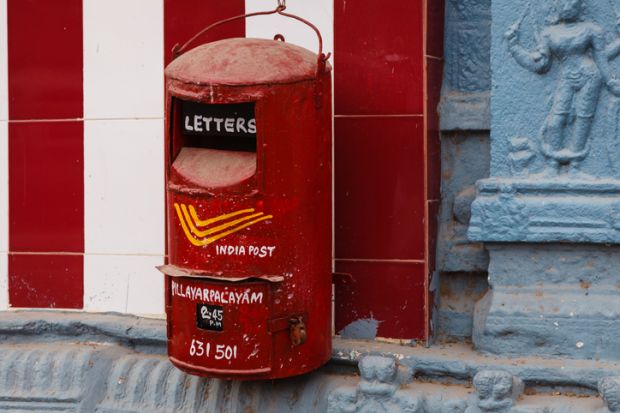Hundreds of academics around the world have come to the defence of professors suspended by an Indian university for allegedly encouraging student protests last year.
More than 500 scholars wrote in support of reinstating the four faculty members at the South Asian University (SAU) who were accused by administrators of “running a Marxist study circle and inciting student protest on campus”, according to media reports.
A partnership between eight nations belonging to the South Asian Association for Regional Cooperation, SAU has in recent years been the site of other clashes between students and administration.
Last October, hundreds of students took part in protests at the New Delhi-based university, calling on administrators to reverse the “significant” annual reductions in scholarships that, students said, made study untenable in an expensive city. In November, the protests escalated dramatically into hunger strikes, with a few students hospitalised and the police called to intervene.
At the time, several faculty members wrote to administrators in support of students, calling on management not to get the police involved – those actions are believed to have led to the suspensions.
This month, scholars representing universities in India, the US and the UK, among others, condemned what they described as “censuring actions” against SAU professors, calling for a reversal of the decision.
“The arbitrariness and callous disregard with which the administrators have taken actions against the professors violate the norms of accountability, transparency, integrity and sustainability of academic institutions,” they write.
“Teaching, conducting research, and contributing to the academic community are all integral parts of a faculty member’s professional responsibilities. Thus, the suspension order violates the basic rights of faculty members to exercise their professional skills and fulfil their obligations.”
Times Higher Education approached SAU for comment.
In a recent opinion article for the Indian newspaper The Tribune, Avijit Pathak, a sociologist at Jawaharlal Nehru University, says he believed the professors involved were being punished for having behaved like “true teachers with a conscience”, with one of them visiting a “severely sick” student in hospital after the hunger strikes.
“In a good society, these teachers should have been appreciated for these qualities or virtues,” he writes.
Professor Pathak says he had previously considered SAU to be “qualitatively different” from most Indian universities, something he no longer felt.
“Is…SAU losing its autonomy, receiving signals from the government and behaving like yet another Indian university producing a bunch of conformists and depoliticised careerists, or even hyper-nationalists?” he asks.

